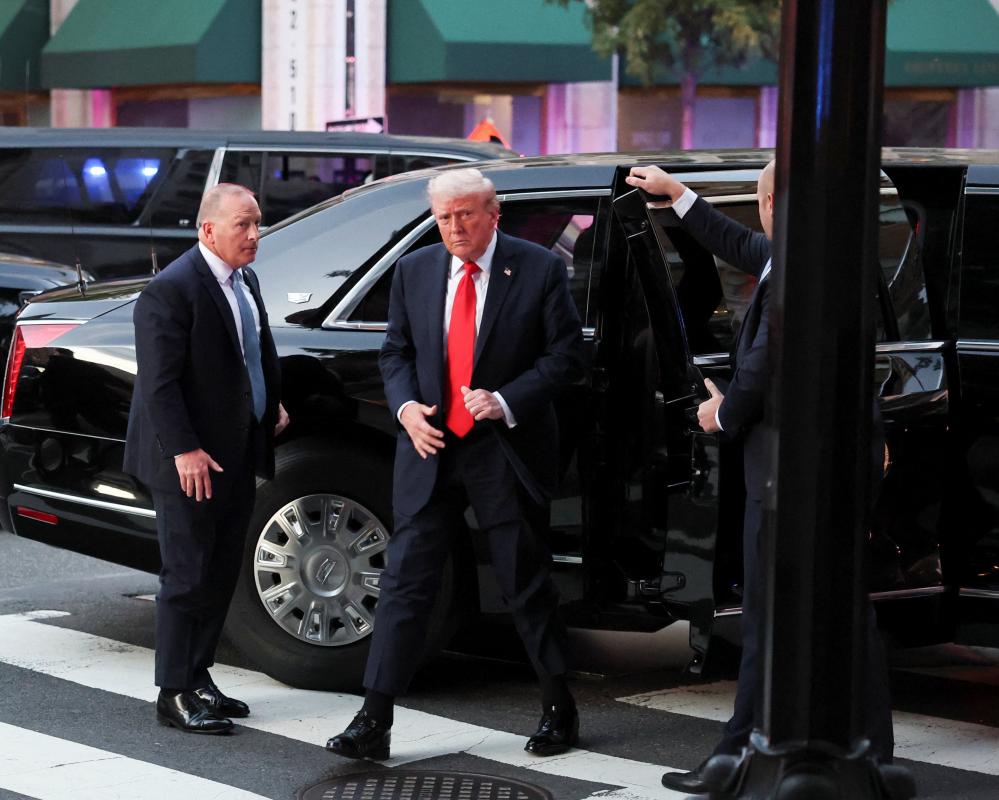In the aftermath of Israeli airstrikes targeting Hamas negotiators in the heart of Qatar’s capital Doha, the White House appeared sidelined from halting a conflict that Donald Trump has claimed only he could mediate.
As details of the diplomatic flurry before Tuesday’s extraordinary strike were revealed, it was claimed that the White House had little say in how Israel opened its latest front in its war against Hamas – this one on a US ally hosting negotiations days after Trump had claimed he was close to reaching a deal.
Instead, the Trump administration appears once again to have been caught by surprise, as with Israel’s strikes in June against Iranian military and nuclear program targets that upended US efforts to negotiate a new nuclear deal with Tehran.
Related: The go-between: how Qatar became the global capital of diplomacy
Trump officials have said warnings of the impending strikes on Qatar came so late that US officials were only informed of the attack by the time that Israeli F-16 jets were already en route to the Gulf.
Whether or not the US has had closer coordination with the Israelis on the strike than admitted, the White House only informed Qatari officials of the attack ten minutes after it had begun, Qatar’s prime minister said on Tuesday.
“I immediately directed Special Envoy Steve Witkoff to inform the Qataris of the impending attack, which he did, however, unfortunately, too late to stop the attack,” Trump said in a statement.
By Tuesday afternoon, the White House was caught between a policy of supporting Israel’s war against Hamas and of patching up relations with a key US ally in the region with close ties to his administration, in particular Witkoff.
The tightrope-walk that the administration is performing was apparent on Tuesday as White House press secretary Karoline Leavitt issued both a condemnation and a justification of the strike, in a statement that appeared desperate to keep the Qatari government onside.
“Unilaterally bombing inside Qatar, a sovereign nation and close ally of the United States that is working very hard and bravely taking risks with us to broker peace does not advance Israel or America’s goals,” Leavitt said from the podium of the White House press room.
But she added a tacit endorsement of the strike, saying “Eliminating Hamas, who have profited off the misery of those living in Gaza, is a worthy goal.”
The strikes could mark the end of the ceasefire negotiation process in Qatar, which has mediated talks between Israel and Hamas for nearly two years.
Qatari prime minister Sheikh Mohammed bin Abdulrahman Al Thani said on Tuesday that the country would continue to mediate between Israel and Hamas, but “for current talks, I do not think there’s something valid right now after what we saw from today’s attack.”
“It is difficult to imagine the Qataris picking up where they left off,” said Steven Cook, a senior fellow of the Council on Foreign Relations. “From Doha’s perspective, Qatar has exerted considerable effort to release Israeli hostages only to be repaid with an airstrike on their country.”
Egypt could act as mediator instead, Cook said, but it is a “thankless task” when “neither the Israeli government nor the Hamas leadership seem interested in a deal.”
“I think it really calls into question what is prime minister Netanyahu’s intention,” said Rachel Brandenburg, Washington Managing Director and Senior Fellow at the Israel Policy Forum, during an episode of a podcast hosted by War on the Rocks. “If he is really serious about negotiations and is serious about ending the war, then why strike the political leaders who are negotiating?”
Despite questions about Qatar’s influence on Hamas and whether the militant group’s leaders could negotiate in good faith, “you need someone to mediate and you need someone to negotiate with and this makes that conversation a lot more difficult,” she said.
Qatar was also caught in the crossfire in the aftermath of a US strike on Iranian nuclear facilities in June, as a US military base in the Gulf country was targeted by an Iranian missile barrage that was easily parried by US missile defense systems.
On Tuesday, Trump said that he had assured al-Thani and Emir Tamim bin Hamad Al Thani that “such a thing will not happen again on their soil.”
But Israel has suggested otherwise. After Algeria called an emergency session of the UN security council, the Israeli Ambassador to the UN, Danny Danon, said: “There will be no immunity for terrorists – not in Gaza, Lebanon, or in Qatar.”

